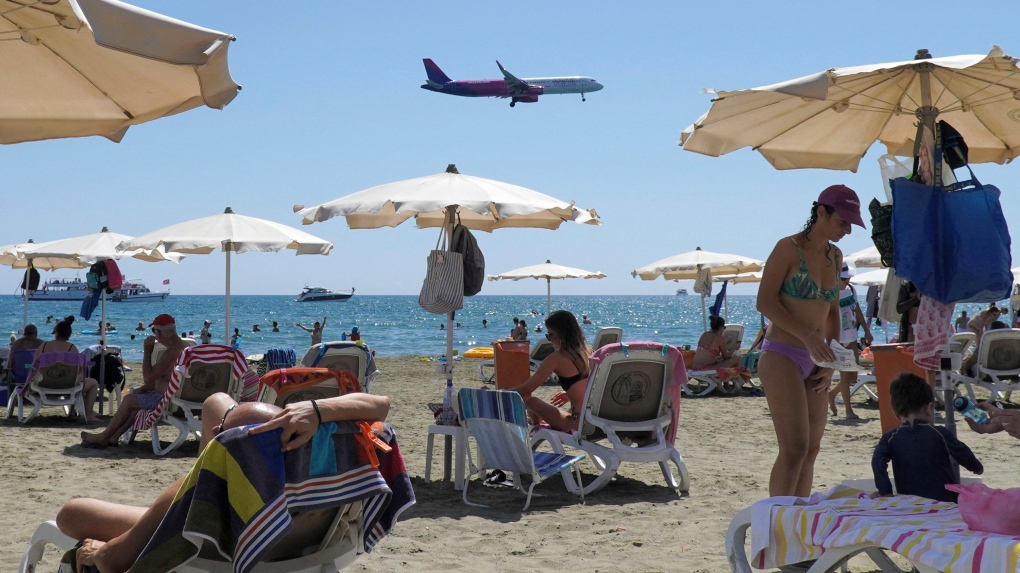Tourists visiting the Galapagos Islands will now be required to pay double the current entry fees starting August 1, 2024. The decision to increase the fees comes as a response to concerns about the growing number of visitors placing undue pressure on the fragile ecosystem of the islands. Ecuador’s Ministry of Tourism has announced the new entry fees, which will see nationals of most countries paying $200 instead of the previous $100.
The only exception is for members of the South American trade bloc Mercosur, which includes countries like Argentina, Brazil, and Peru, who will now pay $100 instead of $50. Children under the age of two will still be allowed to enter for free, regardless of nationality. This marks the first increase in Galapagos entry fees since 1998. Niels Olsen, Ecuador's tourism minister, emphasized the importance of protecting the Galapagos Islands, stating that they are not only a national treasure but a global one. The additional funds collected from the increased entry fees will be directed towards conservation efforts aimed at preserving the unique ecosystem of the islands, located 1,000 kilometers (621 miles) off the coast of mainland Ecuador. The Galapagos Islands, designated as a UNESCO World Heritage site, are made up of over 100 islands and are often referred to as a "living museum" due to their rich biodiversity and unique wildlife. Home to numerous rare and endangered species of plants and animals, the islands attract around 170,000 tourists annually despite having a population of only 30,000 residents. The Galapagos Conservation Trust, a U.K. -registered charity dedicated to promoting conservation and sustainability on the islands, has expressed concerns about the environmental impact of the rising number of visitors. The increase in land-based tourism has strained waste management systems, exacerbated water and food insecurity, and raised the risk of introducing invasive species to the islands, according to the organization's website. Despite these challenges, ongoing scientific research in the Galapagos continues to yield significant discoveries. In the past year, a previously unknown coral reef believed to be thousands of years old was found by scientists in the archipelago. UNESCO has also issued reports on the islands, acknowledging the Ecuadorean government's efforts to combat illegal fishing and control invasive species but requesting further updates by 2024. The global significance of the Galapagos Islands is further highlighted by an upcoming movie directed by Ron Howard. "Eden," set to be released later this year, delves into a true-life story of scandal, sexual liberation, and murder that unfolded on a Galapagos island in the 1930s. The film is expected to feature a star-studded cast, including Sydney Sweeney, Vanessa Kirby, Ana de Armas, and Jude Law. In conclusion, the increase in Galapagos entry fees reflects a commitment to preserving the unique ecosystem of the islands in the face of mounting environmental challenges. By redirecting additional funds towards conservation efforts, Ecuador aims to ensure the long-term sustainability of this valuable heritage site for future generations to enjoy.Galapagos Islands to Increase Tourist Entry Fees Due to Growing Visitor Numbers
 6 months ago
2605
6 months ago
2605
- Homepage
- Gossips & Lifestyle
- Galapagos Islands to Increase Tourist Entry Fees Due to Growing Visitor Numbers
Related
"Meghan Markle's Heartfelt Tribute to Princess Diana Through...
1 month ago
2025
Prince Harry and Meghan, Duke and Duchess of Sussex, Delve i...
1 month ago
2073
Annual 'All-Access Fly Pass' Announced by European Airline
1 month ago
2047
Trending in United States of America
Popular
Nokia Reaches 5G Patent Agreement with Vivo After Lengthy Le...
7 months ago
26048
Apple's Upcoming Tablet Lineup: iPad Air to Introduce Two Si...
9 months ago
25976
Xiaomi's First Electric Car, the SU7 Sedan, Enters the EV Ma...
8 months ago
25364
The European Parliament's Bold Move to Combat Smartphone Add...
9 months ago
25312
Unveiling ChatGPT's New 'Memory' Feature Revolutionizing Use...
7 months ago
25212
© OriginSources 2024. All rights are reserved








 English (US)
English (US)